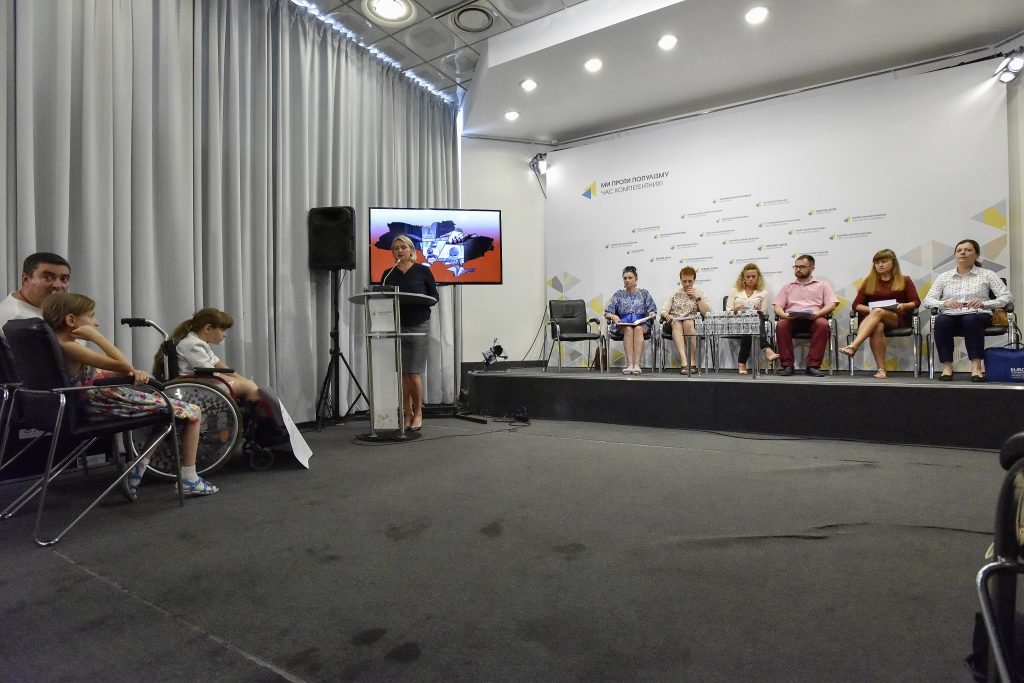Resolution 180 of the Cabinet of Ministers of Ukraine suspended public procurement and administering medicines beyond the essential medicine list according to subsidized prescriptions. The list does not include medicines for patients with oncological and onco-hematological, rare, and other serious diseases. This primarily affected the most vulnerable groups of people who had been taken care of by the regional and local health departments: children, families with low income, combatants, soldiers who became disabled in the war, or people who became disabled as a result of the Chernobyl disaster, and children with disabilities. This was reported by Oksana Aleksandrova, chairman of the Public Council of the Ministry of Health of Ukraine for the protection of patients’ rights, at a press briefing at Ukraine Crisis Media Center.
“Resolution 180 says that the needs in the medicines on the National Essential Medicine List must be satisfied on a 100% and first-priority basis. They take more than 300 positions. Nobody ever counted a 100% demand for these medications. Therefore, no region knows what funding is required to meet this need. There is no base for such calculation in our country,” said Oksana Aleksandrova. This has stopped the work of regional health departments. As a result, a large number of patients are untreated today. “The national list should exist, but only after the MOH does all calculations in all areas,” said Tetiana Kulesha, Member of the Public Council of the Ministry of Health of Ukraine, Head of the Council of the Public Association “Orphan Diseases of Ukraine”.
Larysa Lavryniuk, Head of the Charity Fund to Help Oncology-ill Children “Crab”, emphasized that during the last six months parents and charitable organizations have taken up the state’s function of providing patients with medicines. Yuriy Andrieiev, public figure, patient, noted that patients spend about 10-15 thousand hryvnias a month on immunosuppressive drugs. Tetiana Zamorska, Vice-President of the International NGO “Dermatologists for Children,” stressed that the National Essential Medicine List fails to meet the requirements for vital and essential medicines, medical food, and other medical products.
Ms. Zamorska stressed that Resolution No. 180 should not apply to CMU Resolution No. 1303 “On Regulation of Gratuitous and Preferential Dispensing of Medicines by Prescriptions in Case of Outpatient Treatment of certain groups of people and on certain categories of diseases”. Oksana Aleksandrova added that it is also important to develop normative documents that separate the orphan nosologies from Resolution No. 180. “I would like the Ministry of Health to provide a clear mechanism – who will receive the drugs and on what principle,” noted Alyona Shevtsova, Member of the Public Council of the Ministry of Health of Ukraine, Head of СO “All-Ukrainian Bridge of Unity.”




